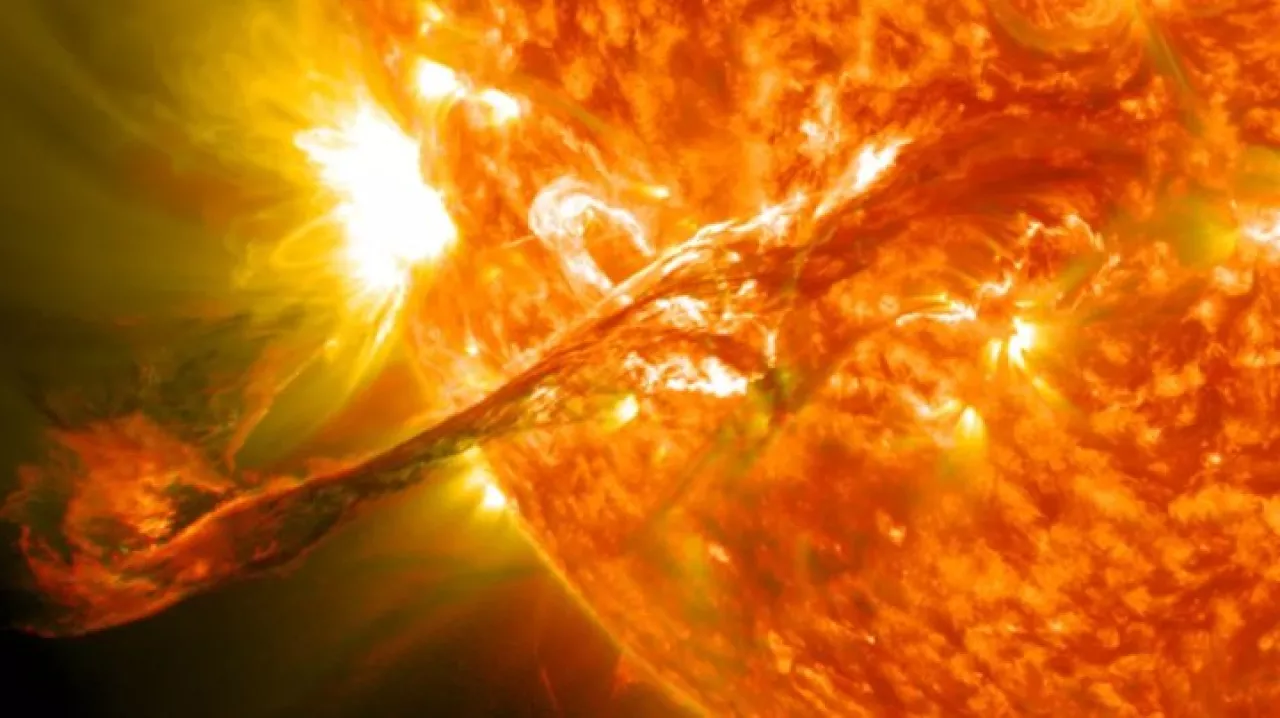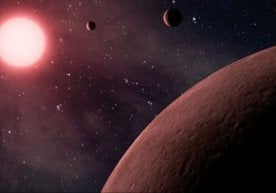Giant magnetic loops of the Sun could put Earth at risk

After a two-week period of relative calm on the Sun, strong flare activity has been observed again. This was reported by the Solar Astronomy Laboratory at the Space Research Institute of the Russian Academy of Sciences.
The previous surge in activity was observed in mid-October, after which the Sun entered a short-term phase of quiet. At around four o'clock Moscow time, astronomers recorded a strong flare of M1.0 class on the Sun's eastern limb.
This is the fourth level on a five-point scale for solar activity, surpassed only by X-class flares in strength. According to experts, this event signals the beginning of a prolonged cycle of solar activity.
Its peak is expected between November 3 and 9. Currently, two large and powerful active regions are being observed on the Sun's left side, visible from Earth.
They can be distinguished by giant magnetic loops reaching heights of 200,000-300,000 kilometers, which is 16-24 times greater than the diameter of Earth. One of these active regions has already been assigned catalog number 4272.
Interestingly, the recent flare has not yet been catalogued, but occurred in another, larger region that is just now emerging on the edge of the Sun. Experts at the Russian Academy of Sciences note that if such strong processes begin before the active region is fully visible, it indicates a huge flare potential.
In the next two or three days, these processes may provide an impressive spectacle for observers. However, starting around the middle of next week, they are expected to have a direct impact on Earth's magnetosphere, posing the risk of magnetic storms.
Solar flares can trigger magnetic storms, impacting the operation of power systems, radio communications, and navigation equipment, and may also affect the behavior of animals and birds. At the same time, increased solar activity could expand the zone where polar auroras can be observed.
However, there is still no conclusive scientific evidence about the effect of magnetic storms on human health.





















